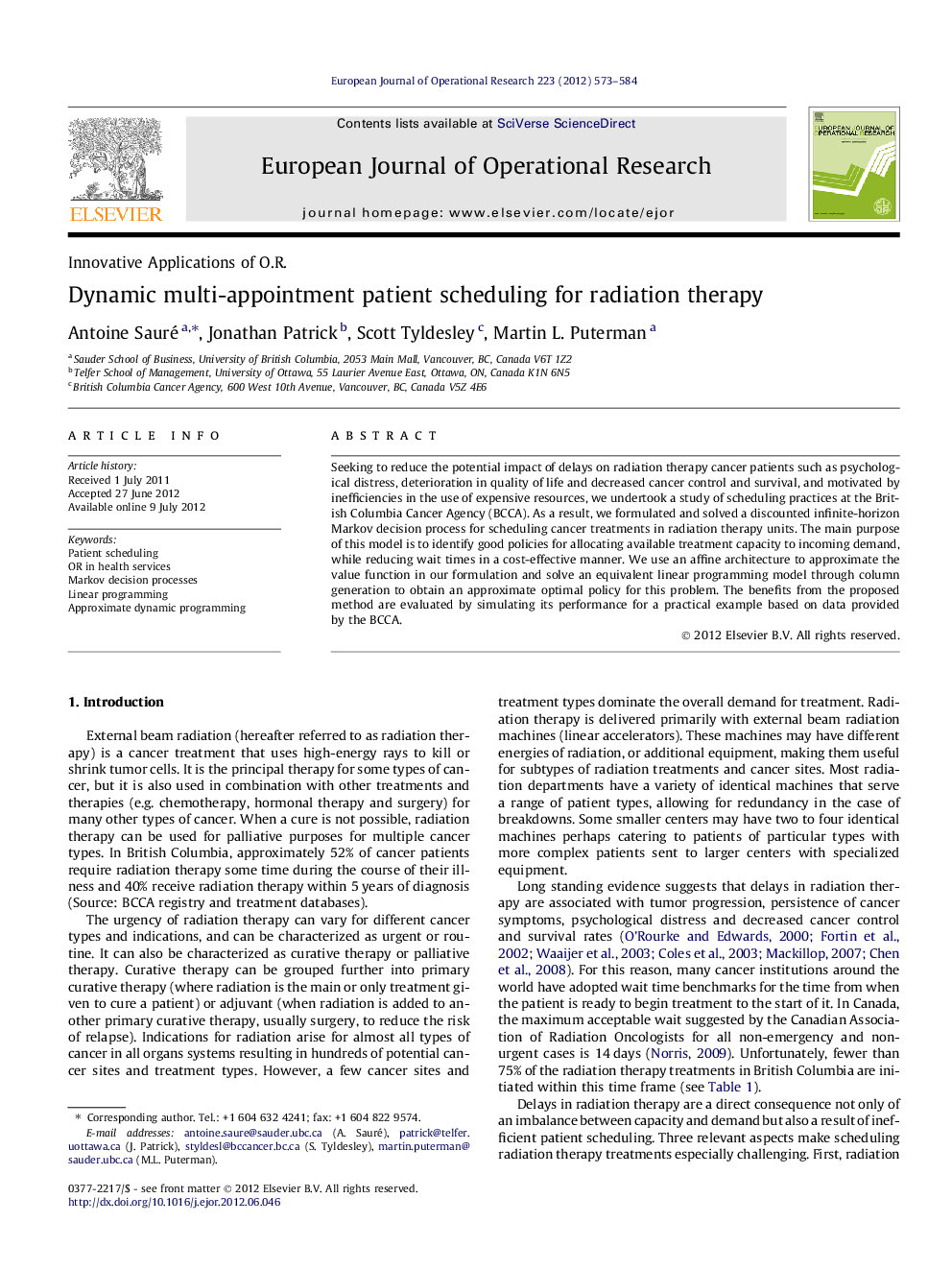| Article ID | Journal | Published Year | Pages | File Type |
|---|---|---|---|---|
| 480264 | European Journal of Operational Research | 2012 | 12 Pages |
Seeking to reduce the potential impact of delays on radiation therapy cancer patients such as psychological distress, deterioration in quality of life and decreased cancer control and survival, and motivated by inefficiencies in the use of expensive resources, we undertook a study of scheduling practices at the British Columbia Cancer Agency (BCCA). As a result, we formulated and solved a discounted infinite-horizon Markov decision process for scheduling cancer treatments in radiation therapy units. The main purpose of this model is to identify good policies for allocating available treatment capacity to incoming demand, while reducing wait times in a cost-effective manner. We use an affine architecture to approximate the value function in our formulation and solve an equivalent linear programming model through column generation to obtain an approximate optimal policy for this problem. The benefits from the proposed method are evaluated by simulating its performance for a practical example based on data provided by the BCCA.
► We study an advance multi-priority and multi-appointment patient scheduling problem. ► Each patient requires a pre-specified number of daily consecutive sessions. ► The number of appointment slots needed in each session may differ. ► The linear programming approach to approximate dynamic programming is used. ► Managerial insights are provided based on practical examples.
